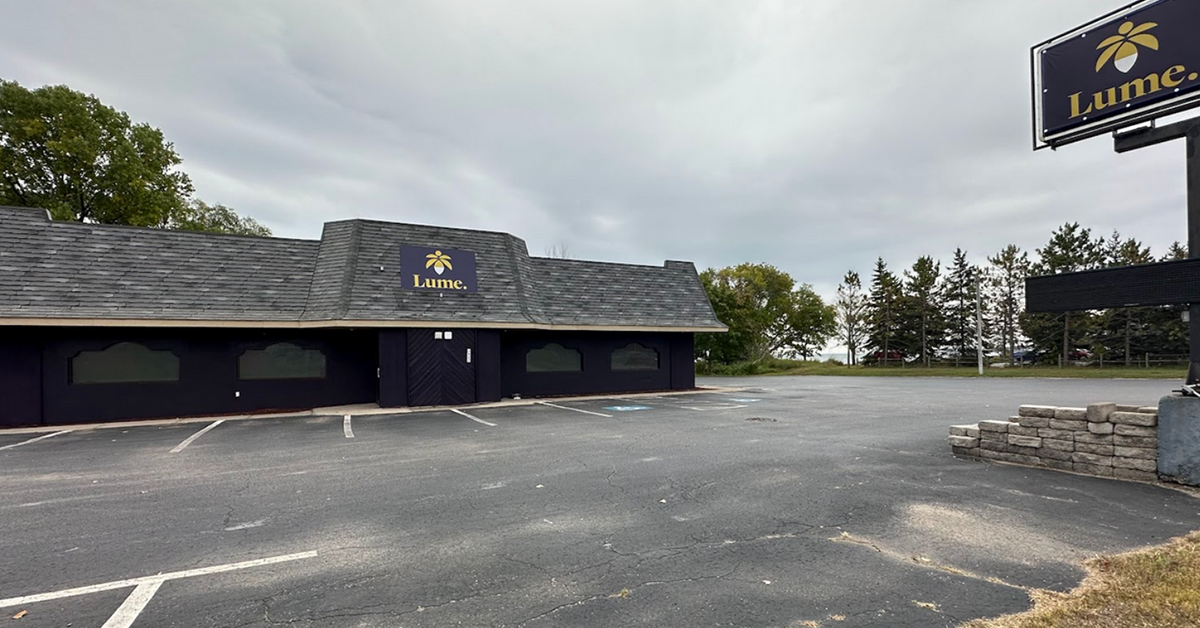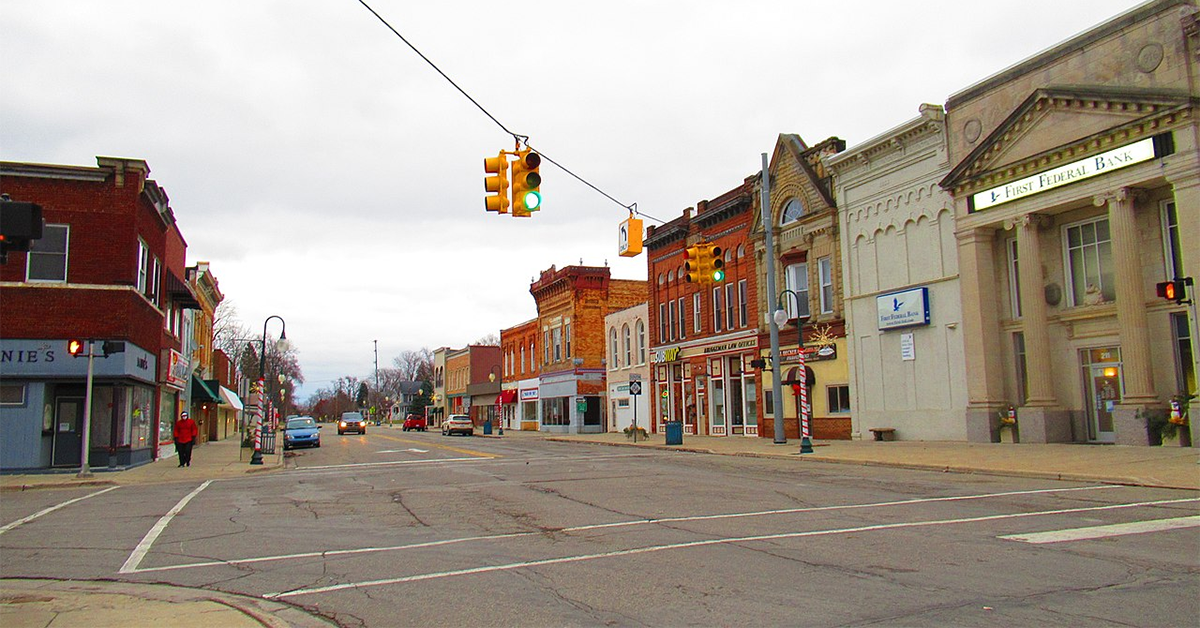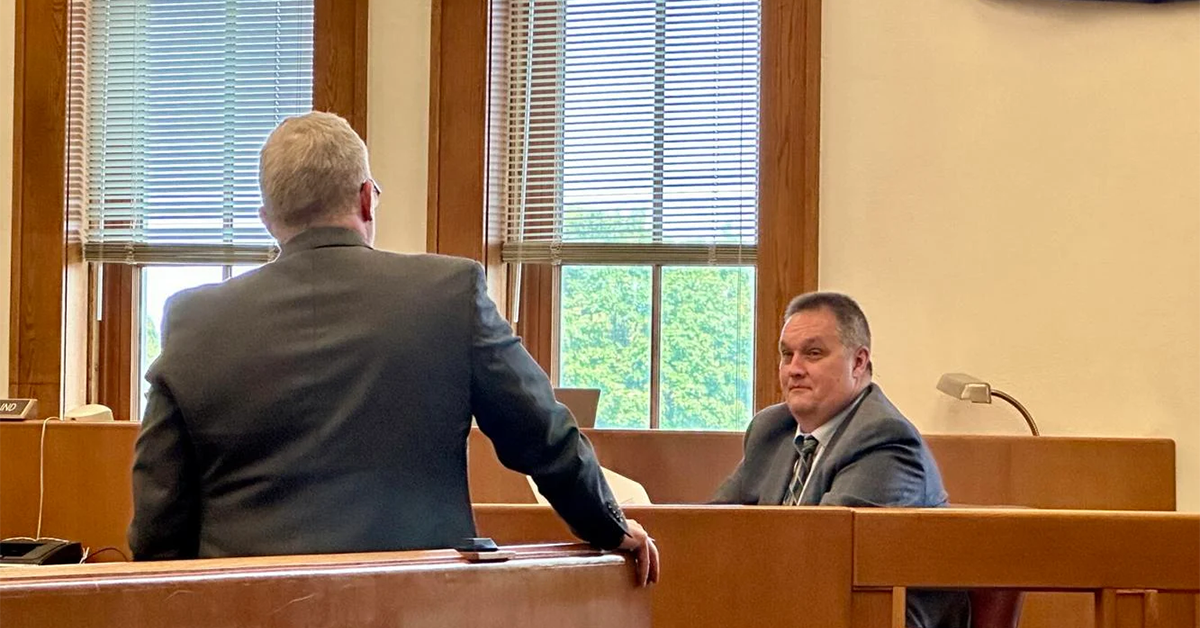The Resonating Impact of Michigan's Clemency Rally on Saturday

Amidst the clamor of voices seeking justice and reform, Michael Thompson, once imprisoned for a non-violent marijuana offense, stood in solidarity with dozens of Michiganders on the steps of the state Capitol this Saturday, advocating for widespread clemency.
The rally, orchestrated by the Michael Thompson Clemency Project, garnered the support of activists, legal experts, and public figures, converging to echo a united message: the call for Governor Gretchen Whitmer to revisit and reduce prison sentences, particularly for senior inmates, individuals with marijuana-related convictions, and those enduring chronic illnesses, among others.
Voices of elected officials rippled through the crowd, as attendees, energized by complimentary Ben and Jerry's ice cream, lent their ears to speeches that oscillated between compelling narratives and urgent calls to action. Justice Richard Bernstein, Washtenaw County Prosecutor Eli Savet, and U.S. Senate candidate Hill Harper were among those who illuminated the rally with their words.
While articulating his experience in working with returning citizens, Justice Bernstein emphasized, "When you work with a person as courageous [as Thompson], as noble as him? ... You see people who don't leave people behind." He underscored the sheer resilience and purpose exuded by individuals like Thompson, who are dedicatedly paving the path toward making societal shifts and advocating for change.
Expressing the significance of adapting to the evolving perspectives on past laws, Prosecutor Savet underscored the importance of recognizing that "societal attitudes have changed" and that "individual people have, indeed, changed and are safe to be released from prison." With a track record of vacating wrongful convictions and championing expungement-related activities, Savet's office mirrors a progressive stance toward recalibrating judicial judgements.
Hill Harper, a Democratic hopeful for the U.S. Senate, expressed vehement criticism of the extant criminal justice system, labeling it as "broken." He emphasized, "It is a moral travesty of what is happening with our mass incarceration system." Harper further distilled the solution into a simple, yet profound essence: love, support, and the recognition of our shared humanity.
Meanwhile, Thompson, casting light on the forgotten populace within prison walls, asserted, "I'm trying to make some noise for those that can't speak for themselves." He elucidated the intrinsic fight within him to echo the voices of those silenced by their circumstances, revealing a relentless spirit that seeks justice not just for himself, but for the countless others confined by the vestiges of past laws.
In a state where the legality of marijuana has shifted dramatically since 2018, the rally stands as a testament to an ongoing struggle for reconciling past convictions with current legislations and societal norms. Through collective voices, tangible actions, and persistent efforts, the gathering at the Michigan Capitol heralds a clarion call, seeking to resound through the corridors of legislative powers and facilitate a transformative change in the judicial approach towards past marijuana-related convictions.
Lume Broadens Its Cannabis Retail Horizon with a Brand-New Outlet in Menominee

Lume Cannabis Co., a prominent name in Michigan's burgeoning adult-use cannabis market, has unveiled its latest retail location, nestling in the serene locale of Menominee, expanding access to premium, safe, and meticulously-cultivated cannabis products to patrons in the region.
Strategically situated at 2812 10th Street, this new hub for cannabis enthusiasts will focus exclusively on curbside purchases, accommodating both pre-orders and on-spot curbside orders, ensuring a convenient and swift purchase experience for all customers. Operating from 9 a.m. to 9 p.m., seven days a week, the store pledges to cater to the diverse needs of Michigan's adult-use cannabis clientele.
Marking its seventh establishment in the Upper Peninsula and the sixth new addition to Lume's retail portfolio this year, the Menominee outlet joins the chain following hot on the heels of launches in several Michigan locales including Traverse City, Birch Run, Holly, Southfield, and Berkley.
A statement from Doug Hellar, President and COO of Lume, reflected the company's enthusiasm and commitment: "This year signifies a momentous period of growth for Lume, and our ongoing expansion in the Upper Peninsula underscores our dedication to ensuring safe and top-tier cannabis products are accessible to our valued customers in and around the Menominee area."
To commemorate its grand opening on Saturday, October 7th, starting at 9 a.m., Lume will host a celebration, offering a suite of promotions and discounts designed to delight its early patrons. This includes complimentary 1/8th offerings for the initial 50 customers, free pre-rolls for the subsequent 50, and gift cards to the much-loved local, The Bagel Shoppe and Café, for the first 100 purchasers, under the 'Lume Receipts = Free Eats' initiative.
Rooted in a firm commitment to quality, Lume assures that all of its cannabis flowers are nurtured and harvested within their state-of-the-art facility, nestled in Evart, Michigan. This facility boasts a team of seasoned, expert growers, ensuring that all Lume products consistently deliver in terms of aroma, appearance, and effects. Furthermore, staunchly opposed to employing harmful chemicals, and adhering to the most stringent industry testing, Lume ensures that every product aligns with the highest benchmarks of quality and safety, crafting a trustworthy and exceptional cannabis experience for every customer.
Detroit Police Raid Puts Psychedelic Decriminalization to the Test

Note to Readers: While the primary focus of our platform remains cannabis-related news, we think it's important to explore the parallel happenings in the realm of psychedelic substances in Michigan, due to its close kinship and its potential implications for future policy-making in related fields. We hope you find the following article enlightening.
In a pivotal moment in 2021, Detroit saw a marked shift toward leniency in drug policy with the voter decision to decriminalize psychedelic mushrooms and several related substances. However, the practical application of this seemingly progressive move has recently been challenged.
Last week, Soul Tribes International Ministries, a self-identified psychedelic religious institution, faced a raid by Detroit police. Despite the organization's assertions of legal and religious sanctity in their practices, the authorities conducted a search, seized substances, and subsequently shut down the operation, branding it illicit.
Shaman Bobby Shu, the founder of Soul Tribes, has expressed a firm intent to resume operations by Monday. The point of contention arises from Proposal E, which was affirmed by 61% of Detroit voters in 2021. While it intended to decriminalize psychedelics within city boundaries, Assistant Corporation Counsel Doug Baker highlights that it neither specifically sanctions the sale/distribution of psilocybin mushrooms nor supersedes state law that continues to designate psilocybin as a controlled substance.
The enforcement of the said operation, according to a police statement, ensured the confiscation of "illegal controlled substances" and cessation of an "illegal operation" that purportedly posed a risk to the community.
Soul Tribes, having inaugurated its services inside the longstanding Bushnell Congregational Church over Labor Day weekend, offers access to psilocybin mushrooms, ayahuasca, and other entheogenic plants they deem sacraments. The ministry eloquently defends its position: "These sacraments reflect our deeply-held religious beliefs and form an integral part of our worship and religious practices, as supported by the Religious Freedom Restoration Act of 1993."
The founder, Shu, was not only pivotal in the institution's operations but was also actively involved in the campaign to pass Proposal E. The resulting city ordinance from the proposal indeed states that law enforcement pertaining to "the personal possession and therapeutic use of entheogenic plants by adults" should be of the lowest priority in Detroit.
In a nuanced explanation, the ordinance clarifies therapeutic use as involving a range of activities with entheogenic plants among adults, potentially under the guidance of a licensed therapist, medical professional, or religious leader. It endeavors to:
- Decriminalize personal possession and therapeutic use of entheogenic plants for adults to the maximum extent permissible under Michigan and federal law.
- Deprioritize the imposition of penalties for related offenses within Detroit.
- Avoid impeding the enforcement of pertinent state or federal laws.
Even before the abrupt shutdown, Shu conveyed that he had engaged in dialogues and email communications with the Detroit Police Department (DPD), affirming the legitimacy of Soul Tribes as a legal and religious entity, registered with the state.
Shu reveals that the police confiscated entheogenic plants valued at over $700,000 and emphasizes that he has not been criminally charged related to the raid. He, along with his legal team, is diligently working to reopen the facility.
Beyond providing access to entheogenic plants and guiding participants through sessions, Soul Tribes also offers teachings on breath work, thought management, reiki, and meditation, among other practices.
Asserting his rights, Shu stated, "You cannot discriminate against us because of our religious beliefs, that's the First Amendment. The police's job is to enforce city ordinances."
This instance underscores the complexity and potential friction points in the navigation between local ordinances, state law, religious freedoms, and drug policy reform—a topic surely to continue sparking debates and discussions in Michigan and beyond.
Stay tuned to our platform for more updates on policy changes, debates, and discussions related to cannabis and psychedelics in Michigan.
Michigan Border Towns Eye Ohio's Impending Marijuana Vote Warily

In the quaint town of Morenci, Michigan, population 2,300, you'll find a scarcity of grocery stores but an abundance of marijuana dispensaries. Positioned strategically along the Ohio border, this locale and others like it — Adrian and Monroe, to name a couple — have become hotspots for cannabis tourism, especially for Ohio residents where recreational marijuana use remains illegal.
Cannabis: A Blossoming Industry Amidst Basic Amenities
Morenci's reliance on the thriving cannabis industry contrasts its lack of basic amenities. Local residents endure at least a 20-minute drive to stock up on groceries, yet the town hosts five distinctive marijuana stores, primarily patronized by Ohioans, many of whom may be navigating Michigan's marijuana market for the first time. If you're one of them, check out our Michigan Marijuana Buying Guide for Tourists for comprehensive insights. The prominence of the marijuana industry starkly contrasts with the town's scarcity of fundamental amenities, underlining its vital economic role in an area lacking basic resources like food markets.
Anticipating Changes: The Ohio Vote on Legalization
However, the tides might be shifting. Morenci, along with other Michigan border towns, is cautiously observing the November 7th vote in Ohio, which could legalize recreational marijuana and thus, potentially curtail the inflow of Ohio cannabis tourists to Michigan. Current illegal status notwithstanding, numerous Ohioans make the trek to Michigan, where they can legally purchase and enjoy marijuana products.
Ohio's Potential Shift Towards Legalization
The proposition presented to Ohio voters seeks to legalize the purchase of marijuana products for adults aged 21 and above in state-sanctioned stores. Furthermore, it would allow residents to cultivate marijuana at home, representing a potential significant shift in regional cannabis commerce.
A poll conducted by Yes2, an advocacy group supporting the initiative, reported that 59% of Ohioans back the proposal, while 36% intend to vote against it, highlighting the potential for this shift to become a reality.
The Financial Implications for Michigan's Marijuana Market
In Morenci, the economic benefit derived from cannabis sales is conspicuous. Brad Moran, Morenci's city superintendent, revealed that the most recent annual sales tax payment to the town from marijuana sales reached $240,000. This sum is augmented by $75,000 from licensing fees for medical and recreational marijuana businesses. The exact figure for property taxes from the five businesses is undisclosed, but it adds a supplementary boost to the town's coffers.
The looming Ohio vote, Moran conveys, is being "watched anxiously."
An Industry at a Crossroads
Bob Eschrich, co-owner of the Jade Collection, a marijuana store prominently located on Morenci's Main Street, estimates "Probably 75% to 80% are Ohio people" among his clientele. The ramifications of the vote could thus be stark, potentially diminishing a sizable chunk of the customer base for businesses like his.
Although many of Michigan's marijuana locations might remain unscathed by the Ohio vote's outcome, towns like Morenci that rely heavily on cross-border sales might experience a downturn. Eschrich anticipates that the survival of Morenci's marijuana businesses is not assured, especially in the intermediate term.
Adaptation and Expectations: A Path Forward
Despite potential challenges, Eschrich remains resilient, asserting that a prospective one-year gap between the vote and the actual opening of recreational stores in Ohio (if the state question passes) provides a crucial window for Michigan stores. Additionally, an excess supply has reduced prices in Michigan's cannabis stores, providing a tentative price advantage until Ohio's market stabilizes.
Eschrich envisions a "three- or five-year window" of transition, during which customer loyalty, particularly among older adults seeking pain relief, will be pivotal. "My way of survival is to be that one people are willing to drive to," he concludes.
In essence, Michigan's border towns, having burgeoned amidst a burgeoning marijuana market, now teeter on the brink of a new era, where adaptation and customer loyalty will determine the sustainability of their green economy amidst potential policy shifts across state lines.
Michigan Banks Turning Over a New Leaf with Cannabis

In recent years, Michigan has become a hotbed for both cannabis business and the banking challenges it presents. While cannabis ventures are flourishing in the region, their banking needs remain complex and somewhat contentious. This is a sector that, despite its growing economic significance, is still shrouded in layers of regulatory caution and skepticism. At the intersection of profit and prudence, banks have been forced to tread carefully, often implementing expensive and compliance-heavy programs to navigate the intricacies of cannabis finance.
But for those institutions brave enough to delve into the fray, the rewards have often been worth the risks. With many banks still reluctant to embrace the sector due to perceived compliance burdens and potential risks, pioneers in the field have capitalized on a largely untapped market, gaining access to a plethora of cheap deposits. However, this landscape is rapidly evolving. With more players stepping into the arena, the once straightforward benefits of banking the cannabis industry are becoming more nuanced. The game is no longer simply about risk and reward but about differentiation, innovation, and most crucially, staying ahead of the competition.
In this article, we'll delve into the various facets of the competitive cannabis banking environment in Michigan, from the strategies employed by forward-thinking institutions to the voices of caution, and the innovative solutions emerging in response to growing competition.
Michigan Marijuana Licensing Drama: The Battle Continues in Menominee

In a new chapter of the unfolding legal drama surrounding Menominee's marijuana licensing, recent developments have put a temporary halt to the issuance of further licenses, revealing deeper intricacies and ongoing issues in local governance and adherence to state law. The City of Menominee, nestled in Michigan, has found itself entwined in a complex lawsuit that challenges the transparency and ethical considerations of its marijuana licensing and ordinance proceedings.
Judge Mary Barglind recently issued a preliminary injunction, asserting that the city cannot undertake any further actions in line with its altered marijuana ordinance or violate the Open Meetings Act during the ongoing state lawsuit. Originating in August, the lawsuit has been spearheaded by a ballot committee named the Committee to Stop Unlimited Marijuana Shops, along with Rize and The Fire Station.
The crux of this legal action centers around allegations of violations concerning the Open Meetings Act and city charter. If victorious, the plaintiffs could see the latest marijuana ordinance invalidated, prohibiting the city council from modifying the number of allowed marijuana shops or issuing various permits until the citizens of Menominee have had their say through a certified, referendum petition. Furthermore, the plaintiffs are advocating for public meetings without closed sessions and for licenses to be limited to only two.
Notably, Menominee City Manager Brett Botbyl has testified that the city did, in fact, violate the Open Meetings Act, shedding light on a pattern of continued non-compliance that Judge Barglind found far from mere technical violations. The judge asserted that this repeated non-adherence to the Act might, in a permanent injunction hearing, be deemed as impairment to the public's rights.
Barglind's decision and Botbyl's admission arrive amidst a backdrop of criticisms directed at the city's handling and communication related to the marijuana lawsuits. Attorney Mike Cox, representing Rize, emphasized a "routine disregard" for keeping Menominee's citizens informed about governmental actions before and after pivotal meetings.
In a perplexing twist, even the introduction of appropriations seemed shrouded in a lack of clarity and transparency. Mayoral candidate Casey Hoffman announced in a special meeting that an allocation to "back the blue" would soon be introduced, despite neither the mayor nor Botbyl having prior knowledge of such financial adjustments. Botbyl's testimony revealed that even council members and city attorneys were in the dark about the appropriation's introduction, raising further questions about internal communication and governance within the city council.
This legal entanglement also offers a closer look at the dealings between the city and various marijuana companies. Distinct disparities were unearthed in the stipulations and requirements for original applicants like The Fire Station and Rize compared to companies like Highwire Farms and NU Group who entered through a settlement. This discrepancy is emphasized by the fact that no other licenses can be issued until those six companies from the settlement secure licenses and locations, putting other applicants on an indefinite hold.
Botbyl pointed fingers at the city website and the EagleHerald for being culpable for Open Meetings Act violations, attributing them to delays in publishing minutes. Nevertheless, the resulting impact leans towards a less informed Menominee citizenry, as the city's internal and external communication pipeline appears fractured at best.
As this saga unfolds, it further intertwines with a history of alleged murky ethics and clandestine dealings that have punctuated Menominee's marijuana licensing landscape. A previous article delves into past allegations, including potential conflicts of interest and battles between the city council and Menominee voters, presenting a detailed overview for those wanting to explore the initial stages of this ongoing dispute.
Navigating through this intricate web of lawsuits, settlements, and ethics queries, Menominee stands as a striking example of the challenges emerging in the legal marijuana business landscape, where high stakes and a potential influx of revenue appear to be entwining with governance, ethics, and transparency in ways that the citizens and businesses of Menominee are wrestling to untangle.
It remains to be seen how these ongoing legal battles and ethics inquiries will resolve and what impacts they will have on the marijuana industry, local governance, and the citizens of Menominee, Michigan. As this situation continues to unfold, ensuring clarity, transparency, and adherence to both legal and ethical guidelines will be paramount in navigating the troubled waters of marijuana licensing and governance.


 Helpful Links
Helpful Links